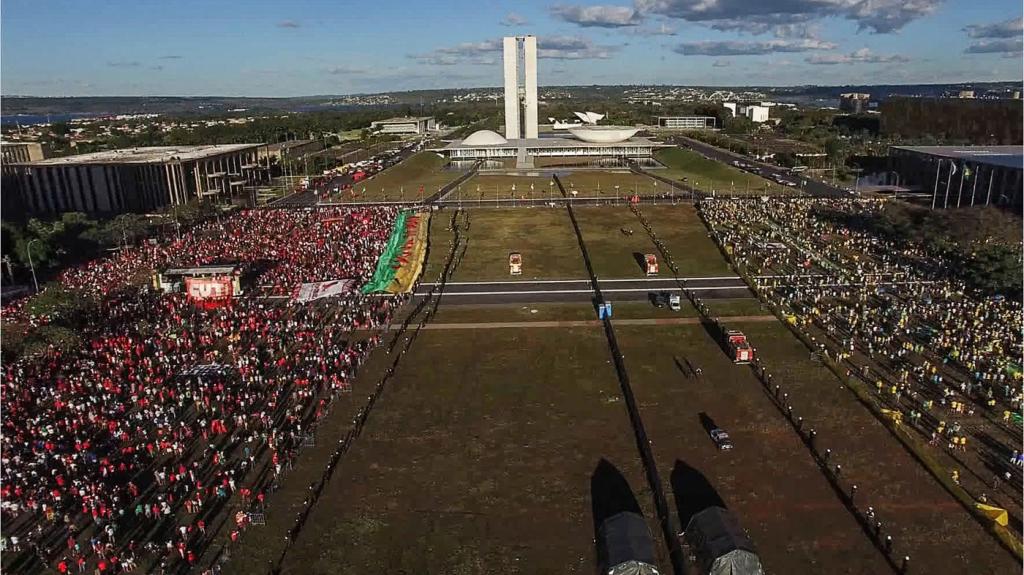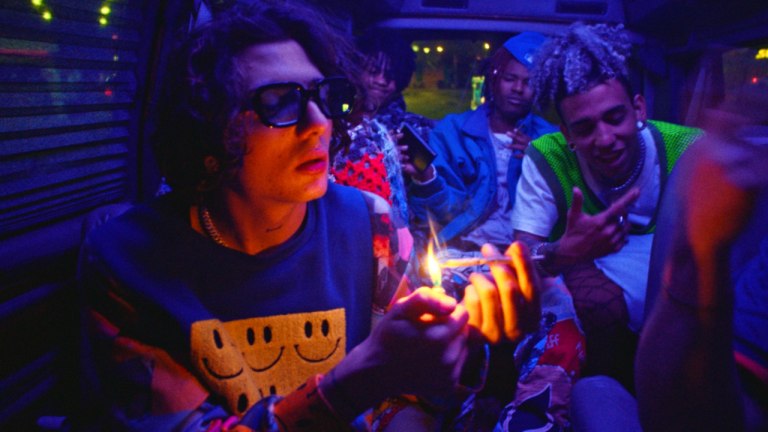“The tragic paradox of the electoral route to authoritarianism is that democracy’s assassins use the very institutions of democracy—gradually, subtly, and even legally—to kill it.” These words from the book ‘How Democracies Die’, written in the climate of shock and disillusionment after Donald Trump’s victory, finds its echo all over the world as the slyly kindled wave of nationalist rage alongside the rise of far-right is relentlessly dividing the general populace into two irreconcilable groups.
Brazilian documentarian Petra Costa’s complex and cautionary Netflix original documentary, The Edge of Democracy (2019) addresses the imperceptible yet persistent erosion of democracy in her native country. Petra Costa is the maker of two lyrical documentaries (‘Elena’ and ‘Olmo & the Seagull’) which astoundingly blurred the lines between fiction and non-fiction.
A former Brazilian President is jailed on corruption charges, another is impeached, and an ultra-conservative man with a soft spot for dictatorship is installed as the country’s new President. Petra Costa methodically dissects and contextualizes how these shocking political transformations came into play.
Related Read — Reason (Vivek) [2019]: ‘LIFF’ Review : A Brilliant Discourse on the Rise of Religious Extremism in India
Corruption charges were levelled against Lula for his allegedly illegal deals with construction companies and regarding campaign financing. Nevertheless, Lula’s regime was lauded for the policies to combat poverty and keep inflation and debt in check. He enjoyed unprecedented popularity and left office in 2010 with an approval rating of more than 80 per cent (we see the footage of Obama introducing Lula as the ‘world’s most popular politician’).
Lula was succeeded by his protégé, Dilma Rousseff, a left-wing activist who in the 1970s was jailed and tortured by the military dictatorship. Dilma’s administration kept its partnership with PMDB, the Vice-President Michel Temer hailed from that party. But when Rousseff started working against the interests of big business and banks, a corruption narrative was peddled by Brazil’s plutocratic media system. Yet Rousseff emerged triumphant in the 2014 general elections. And that’s when the diabolical nexus of backroom operatives, elite class, media oligarchs, and extremists started their campaign for impeachment, despite her victory at the ballot box. While the Brazilian media exhibited to rest of the world a simple narrative of angry citizens protesting against corruption-tainted President, it had nefarious motives.
Costa depicts how their myopic view of delivering justice only targeted the Workers Party Presidents without producing any strong evidence (while also concealing the prosecution-side malpractices). Only a year after Rousseff’s impeachment, corruption charges were brought against the interim President Temer. However, the shameless politicians in Congress voted against the investigation of Temer.
Furthermore, these tactics dangerously weaponize a section of the populace by evoking nationalist and religious fervour. Although the complexity of corruption scandals and the rivalry between the political parties documented here couldn’t be easily grasped by those without an idea of Brazil’s history, the chronicle of democracy in disarray is very familiar. The principal players and the political landscape may vary, but it’s always about restricting the distribution of power and wealth.
Also, Read — The Best Netflix Original Movies of 2019
Petra Costa (and her cinematographer Joao Atala) has had great access to the key players of the documentary: Lula and Dilma Rousseff. Dilma had been in the same prison as Costa’s mother, and the ex-President casually chats about the immense freedom they had in hiding and being anonymous. These constant evocations of family connections, particular to the liberal left-wing political establishment don’t actually impart a tone of journalistic film-making.
In fact, the film-maker doesn’t feign objectivity. Yet, her camera travels keenly follows all the key political players even though she doesn’t agree with them. “They call me rude, homophobic, racist, but I’m a hero”, claims Jair Bolsonaro (to Petra Costa), the retired military officer and current Brazilian President, rightly dubbed as ‘Brazil’s Donald Trump’. Costa’s uniformly vibrant images also often cause the feeling of being in the moment. Be it the slow, sweeping drone shots of Brazilian Parliament or the raw, handheld shots of protests and armed forces retaliation, the film-maker deftly juggles between a combination of visceral immediacy and calm contemplation.
Overall, The Edge of Democracy (121 minutes) is a must-see cautionary tale on the continuing triumph of authoritarian and deeply partisan politics.




![Once Upon a Time in Anatolia [2011] : A Criminal Fairy Tale](https://79468c92.delivery.rocketcdn.me/wp-content/uploads/2016/05/vlcsnap-2016-04-13-13h05m13s099-768x326.png)
![By Night’s End [2022] Review – A timid and often silly home-invasion movie bodged down by lack of tension](https://79468c92.delivery.rocketcdn.me/wp-content/uploads/2022/07/By-Nights-End-Movie-Review-1-768x326.jpg)


![The Disciple [2020]: ‘TIFF’ Review – A deeply moving character drama about the arduous journey of a failed artist](https://79468c92.delivery.rocketcdn.me/wp-content/uploads/2020/09/The-Disciple-Movie-Review-highonfilms-768x321.jpg)
